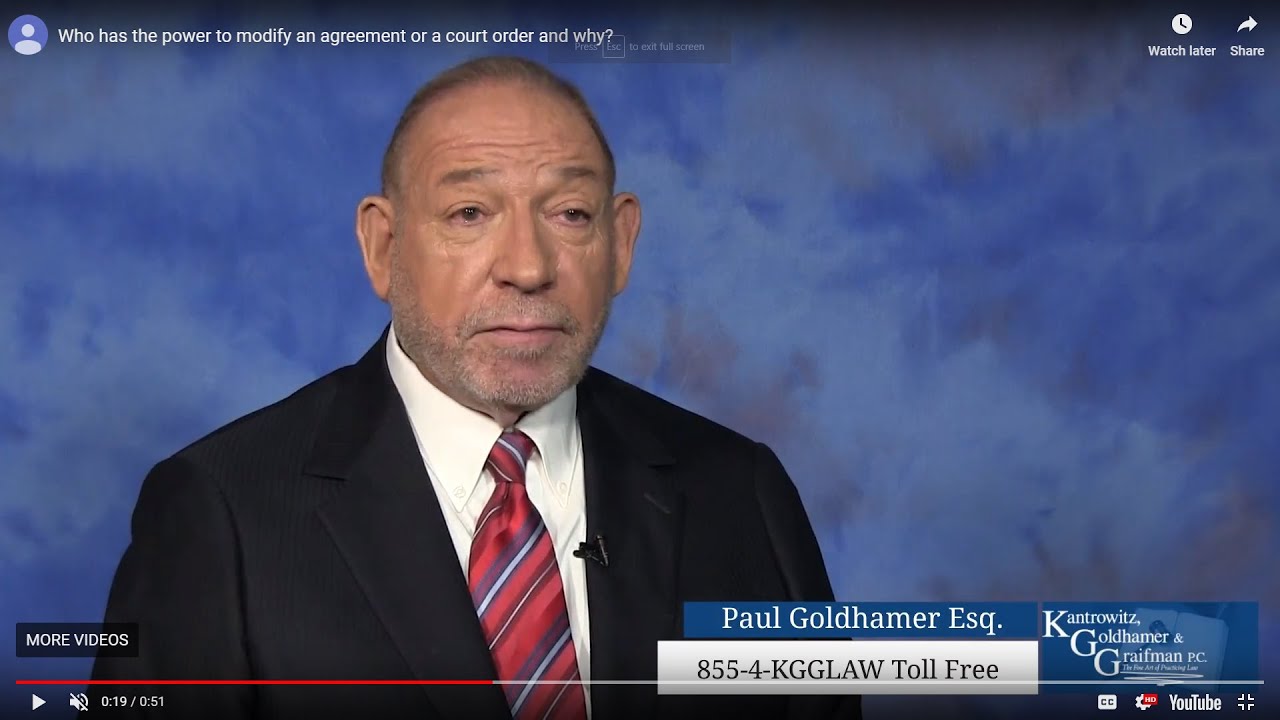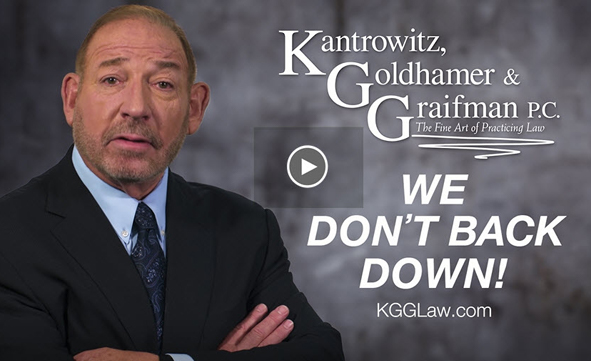Even a relationship that ends amicably can cause heartbreak when there are children involved. When child support is at issue in Rockland County or Bergen County, it is important to trust your case to an experienced NY or NJ attorney.
At KGG, our matrimonial attorneys in Rockland County and Bergen County understand both the legal and emotional issues involved in child custody and child support. Our NY and NJ child support lawyers are here to help you put your children first while protecting your rights.
Obligation to pay child support
Regardless of whether parents are divorced or were never married, the noncustodial parent is required to pay child support. The specifics of the obligation to pay child support, however, are different in each state. It is important that you work with a child support attorney who is well-versed in the law of the state where the child support is owed.
Child support in New Jersey
In New Jersey, the non-custodial parent must pay child support until the child turns 18 and is no longer in school, unless the child is considered emancipated. A number of expenses are considered bundled into the child support and need not be paid separately. These include clothing, footwear, entertainment, and up to $250 in unreimbursed medical expenses, per child, per year.
New Jersey courts have also, on occasion, required divorced parents to contribute to the cost of the child’s college education where still-married parents would not be obligated. It is generally a good idea to consult a lawyer when it comes to child support issues, but KGG child support lawyers in Bergen County, NJ are especially helpful when it involves a question of college tuition.
Child support in New York
Non-custodial parents in New York are obligated to pay child support until the child reaches the age of 21 unless the child is considered “emancipated”. A child can be deemed emancipated if he or she is married, in the military, or otherwise self-supporting.
In New York, child support includes cash based on income, health insurance, contributions to child care, and payments for reasonable out-of-pocket health care costs. The obligation to pay until the child turns 21 can be altered by agreement; a KGG child support lawyer in Rockland County, NY is the best person to speak with about such alterations.
Child Support Calculator
In both New York and New Jersey, when a non-custodial parent owes support, the courts use an income-based child support formula to calculate the amount owed.
Very generally, the formula combines both parents’ income and then looks to state guidelines to determine the right amount of support for the number of children. Then the total support needed to adequately provide for the children is proportionately divided between the parents, and the deficiency will be paid from one parent to the other. Parents may split additional costs, such as medical insurance, day care expenses and extracurricular activities in proportion to their incomes or equally.
The child support calculator is only meant as an approximation. In reality, each family has unique circumstances. This means there are times when a court may choose not to apply the general guidelines, or to make certain exceptions due to special circumstances.
At KGG, we will carefully review all the details of your case to determine what is in the best interest of your children and advocate on your behalf.
Enforcement of Child Support
Is your former spouse failing to fulfill the child support obligations as they are stated in your divorce settlement agreement? Parents who are not receiving court-ordered support must retain a child support enforcement attorney to protect your child’s rights, before the arrearage (past amount owed) becomes overwhelming.
Child support orders should be reviewed every few years, as circumstances for both the recipient parent and paying parent may change. It is important to remember that child support is actually the right of the child. Any time the court is asked to revisit a prior divorce order, they will base any decision on what is best for the child in question. When a parent can demonstrate a substantial change in circumstances, such as a significant income change or a child reaches the age of emancipation, it may be necessary to revisit and modify the child support order.
KGG attorneys are always here for you, to help you determine or refine child support obligations. We can also discuss your request for a modification or enforcement of support responsibilities.
Speak with a NY and NJ child support attorney
Family law is complex and where children are at the heart of a dispute, the emotional stakes are high. Call a child support attorney you can trust for solid and caring advice. The attorneys at Kantrowitz, Goldhamer & Graifman are here to serve you in this challenging time. Call today to schedule a consultation.
Modifying Your Child Support Order
As a Rockland County, NY child support lawyer understands, a standing child support order does not always work (permanently) for everyone involved. Though we stand by the fact that a person has an obligation to pay child support in order to take care of their children and provide for them, we also understand that there are going to be circumstances that will not allow you to continue paying the same amount of support. If you are going through a life change and believe that you should be paying a different amount of child support, don’t hesitate to contact the team at Kantrowitz, Goldhamer & Graifman, P.C. It is possible to make changes to your child support amount and it is a process made simpler with the help of a lawyer you can count on.
Can you change the amount for any reason?
No. Simply not agreeing with the amount of child support that you are paying is not reason enough to try to modify your support order. As you likely know by now, a judge orders the noncustodial parent to pay a certain amount of child support based on both parents’ incomes and who has physical custody of the child. Even if your financial situation changes (either increases or decreases), your child support amount will not change unless you (or your child’s other parent) petition to get a modification to the child support order.
How can I make a modification?
Both parents can make modifications with the help of a Rockland County child support lawyer. If the custodial parent believes they are not receiving enough child support (or knows that the non-custodial parent has gotten a significant pay increase), they may wish to petition the court to increase the amount of child support every month. On the other hand, if the non-custodial parent has gotten a pay decrease or has lost their job, they should work with a lawyer to modify the support order to pay lower amounts. To make such a change, the parent who is petitioning must show:
- There has been a substantial change to require an increase or decrease in support.
- Three years have passed since the order or non-custodial parent has had a 15% increase or decrease in income.
Will a change in child support affect my visitation rights?
Many parents are concerned that if they request a smaller amount of child support then a court may determine that they do not love their child enough or that they should not have the right to visit their child enough. However, finances and visitation rights are two separate issues, and requesting a modification to child support will not affect how much you get to see your child. Remember, if the custodial parent in any way tries to keep your child from you or interferes with your ability to see your child due to a child support modification, you have the right to work with your lawyer and ensure you can remain a part of your child’s life.
Get Legal Help Now
When you need help with your child support order or would like to request a modification, reach out to the team at Kantrowitz, Goldhamer & Graifman, P.C. We care about getting you the legal help you need. Call to schedule a consultation with our Rockland County child support lawyer now.
Additional Child Support Resources:
- New Jersey Courts, Probation Services – Child Support Enforcement.
- New Jersey Department of Human Services, Child Support, http://www.njchildsupport.org/
- New York State, New York Child Support Online, https://www.childsupport.ny.gov/dcse/home.html
Frequently Asked Questions
How is child support calculated, and what factors influence the amount?
While child support calculations can vary among courts, some of the factors considered are the parents’ income and custody arrangement, as a NY and NJ child support lawyer can explain. Courts may also consider expenses like healthcare and education. The goal is to ensure the child’s needs are met and maintain a consistent standard of living. Additionally, deviation factors, such as special needs or shared custody, may be considered. Parents should gather financial documentation and consult an attorney to navigate the intricacies of their specific case. Legal professionals can provide guidance on the applicable guidelines and assist in negotiating a fair child support agreement that best suits the child’s interests while respecting parental rights.
Can child support orders be modified, and under what circumstances?
Child support orders can typically be modified when there is a significant change in circumstances. Common reasons for modification include changes in either parent’s income, employment status, health conditions, or alterations in the child’s needs. Relocation of a parent or a child may also warrant a review. To modify child support, it’s crucial to file a request with the court, outlining the reasons for the change and providing supporting evidence. Courts will assess the new circumstances and adjust the child support amount accordingly to ensure fairness and the child’s well-being. Consulting an experienced child support lawyer can help you navigate the process better and improve your chances of getting a modification approved.
Question: What happens if a parent stops paying child support?
As a lawyer can explain, failing to pay child support is a serious issue. When a parent stops making payments, enforcement actions can be taken. The custodial parent may seek enforcement through the court system, which can result in various consequences for the non-paying parent. Enforcement measures may include wage garnishment, interception of tax refunds, suspension of driver’s licenses, and even contempt of court charges, leading to fines or imprisonment. It’s essential for both parents to communicate and address financial challenges promptly. If difficulties arise, the non-custodial parent should petition the court for a child support modification rather than simply ceasing payments.
Question: Can child support be waived or terminated before the child reaches the age of majority?
Child support is typically intended to support the child’s upbringing and basic needs until they reach the age of majority, which is generally 18 or until they graduate from high school. In some cases, child support may continue if the child has special needs or requires additional support for educational expenses. In specific scenarios, both parents may agree to waive or end child support early. This usually involves a formal agreement, and the court will evaluate the arrangement to ensure it aligns with the child’s best interests. It is essential to consult with a lawyer to properly navigate the legal process and safeguard everyone’s rights.
Question: Can child support orders be enforced if one parent lives in a different state or country?
Yes, child support enforcement across state or international borders is possible due to various agreements and laws. The Uniform Interstate Family Support Act (UIFSA) governs interstate child support enforcement within the United States, streamlining the process. For international cases, countries often have reciprocal agreements that allow for enforcement. The enforcing parent must seek assistance from their state’s child support agency, which will work with the relevant agencies in the other jurisdiction to enforce the order. To learn more about how child support works and how it is enforced, contact an experienced child support lawyer like one from Kantrowitz, Goldhamer & Graifman, P.C. and have your questions answered.












